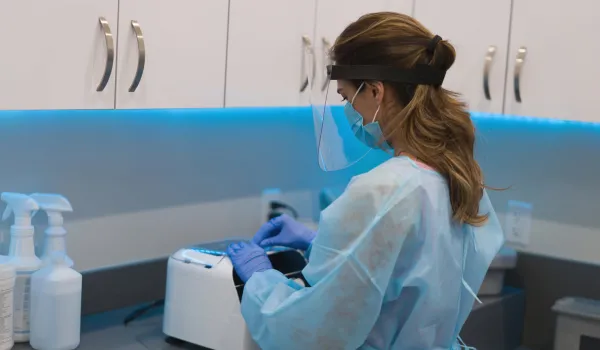Concorde Staff

Saturday is United Nations International Day of Persons with Disabilities. To commemorate the day, we at Concorde thought it would be an appropriate time to take a look at how Physical Therapist Assistants (PTAs) work to help the disabled.
As Dr. Linda Reed, PT, DPT, MEd, Director of Concorde's Physical Therapist Assistant Program in Garden Grove, CA, points out, the profession of physical therapy is dedicated to "restoration, maintenance, and promotion of optimal physical function," per the American Physical Therapy Association. Physical Therapists (PTs) and, by extension, Physical Therapist Assistants, are movement specialists. When an injury, disease or condition impairs the ability to function or move normally, or causes a person pain, this can lead to a disability.
Role of physical therapists and Physical Therapist Assistants
The role of a physical therapist is to examine, evaluate and diagnose impairments leading to a disability and then devising a plan to help remediate those impairments. The Physical Therapist Assistant is the licensed extender of the physical therapist and is responsible for implementing plans of care as directed by the PT.
When it comes to disability, all ages can be affected, Dr. Reed said. Consider a child born with cerebral palsy. If the child is unable to move normally, the ability to attain the developmental milestones needed to attain normal movement will be impaired which can lead to deformities and affect all areas of development concurrently.
"There might be no cure for the condition, but with therapy, at least the child can learn to function optimally, the best they can," Dr. Reed said.
"Adults affected by movement impairments can be challenged to fulfill their roles in society, such as breadwinner, mother, father, teacher or whatever their chosen profession was prior to their disability. However, many folks with disabilities are able to carry on and live very productive lives through the help of the PT and PTA."
Physical therapists and Physical Therapist Assistants play a major role in helping members of the community of all ages and in many various settings, including hospitals, schools, homes, rehabilitation centers, outpatient clinics, skilled nursing facilities, and even hospice. They motivate, educate and help remediate the effects of conditions leading to disability and help those afflicted live the most fruitful and functional lives possible.
"Physical therapy is a most gratifying profession and career and one that is appreciated around the world," Dr. Reed said.
Concorde students reach out and chip in
On Dec. 1, 2016, students of Concorde's Physical Therapist Assistant program in North Hollywood provided services to patients with mental retardation and developmental delay, according to Dr. Yelena Verba, BSPT, DPT, PTA Program Director there. Patients seen in Valley Village adult services received a range of motion and stretching to prevent contractures. As part of their physical therapy training, students also were part of providing pressure relief with positional changes and patients were placed in standers to prevent contractures, decrease tone and prevent the development of osteoporosis.
"Physical Therapist Assistants are licensed, skilled health care professionals that provide patients with disabilities the ability to preserve function and prevent regression," Dr. Yerba said.
Interested In How To Become a Physical Therapist Assistant?
Click here to explore Physical Therapist Assistant Programs near you!

Take The Next Step Towards a Brighter Future
Interested in learning more about our Physical Therapist Assistant program? We have a Concorde representative ready to talk about what matters most to you. Get answers about start dates, curriculum, financial aid, scholarships and more!






